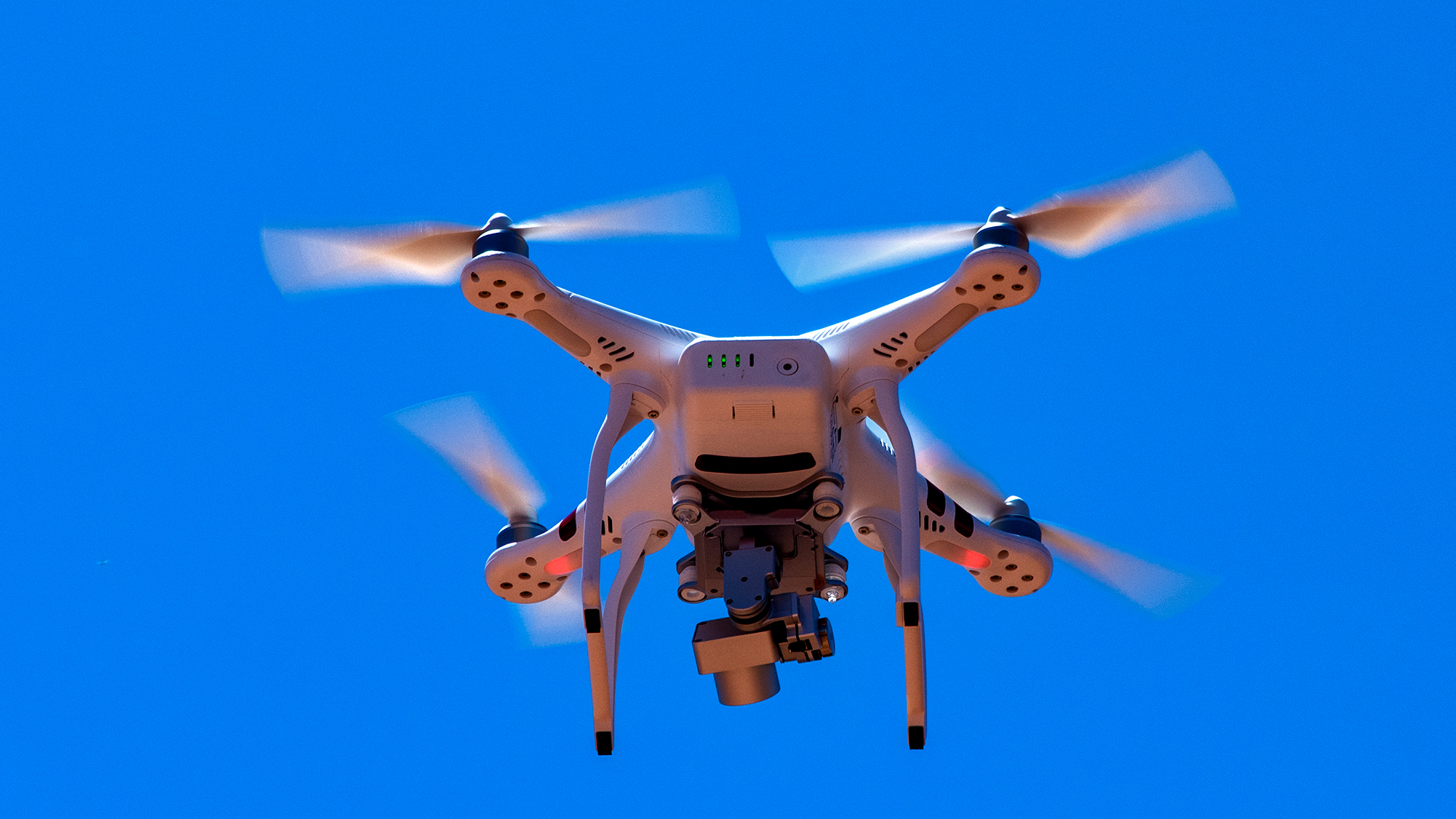FCC Seeks Input on Dynamic Licensing of Drone Flights
Says it is looking to refresh record since 2018 proposal

The smarter way to stay on top of the multichannel video marketplace. Sign up below.
You are now subscribed
Your newsletter sign-up was successful
The FCC has signaled it is looking back into the issue of giving drone operators an FCC license, though not an exclusive one.
That comes as unmanned aircraft systems have taken off, as it were, as a way to deliver medical supplies and respond to emergencies like wildfires, hurricanes, earthquakes and search and rescue, as well as tower inspection, mapping, surveillance, not to mention TV and film production.
The FCC's Wireless Telecommunications Bureau is seeking to "refresh" the record on using the 5 GHz band for UAS, including a 2018 request by the Aerospace Industries Association (AIA) that the FCC develop licensing and service rules for UAS operations in the U.S.
The AIA proposal is based on providing operators "with highly transitory spectrum assignments [literally on the fly] tailored in both geography and time to specific flights."
Also Read: FCC Opens Challenge Docket for C-Band Payment Disputes
The petition was first put out for public comment in April 2018, but no action was taken.
On Friday (Aug. 20), the bureau issued a public notice to update the record with developments over the past three years relevant to the proceeding, and to "explore certain aspects of the AIA proposal in greater detail than is reflected in the current record."
The smarter way to stay on top of the multichannel video marketplace. Sign up below.
The FCC also said that since the AIA proposal appears to be limited to line-of-sight radio transmissions linked between the drone and the operator, it wants to know if there should be a licensing alternative in the band for the growing interest in "beyond-line-of-sight operations."
Among the greater details it wants to explore are 1) whether operators seeking a license need to certify they have an FAA remote pilot certification; 2) how a dynamic frequency assignment management regime would work; 3) what new or modified technologies and devices or standards are needed; 4) the appropriate technical requirements; and 5) the scope of the service.
“Unmanned Aircraft Systems (UAS), or drones, could greatly enhance our public safety, economic competitiveness, and scientific progress," said FCC Commissioner Geoffrey Starks. "That was the message I received in early 2020 when I visited the Nevada Institute for Autonomous Systems, an FAA-designated UAS test site outside Las Vegas. But these systems cannot truly flourish without Commission action governing the operation of UAS in licensed spectrum. That’s why I called for such action earlier this month. I’m therefore pleased to see today’s Public Notice seeking to refresh the record of a proceeding seeking a licensing framework for UAS."
Contributing editor John Eggerton has been an editor and/or writer on media regulation, legislation and policy for over four decades, including covering the FCC, FTC, Congress, the major media trade associations, and the federal courts. In addition to Multichannel News and Broadcasting + Cable, his work has appeared in Radio World, TV Technology, TV Fax, This Week in Consumer Electronics, Variety and the Encyclopedia Britannica.

